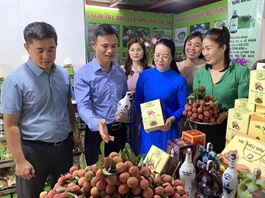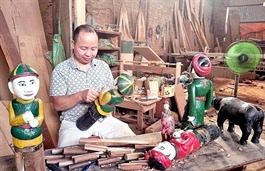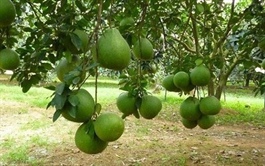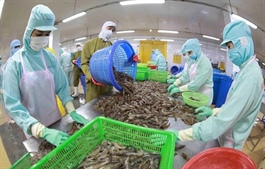Vietnam keen to spread wings in far-flung trade deals
Vietnam keen to spread wings in far-flung trade deals
Vietnam is boosting its plan to expand trade to the globe’s Southern Common Market with a potential free trade agreement under preparations for negotiations.

According to the Ministry of Industry and Trade (MoIT), agencies have been assigned to work with peers of the Southern Common Market (Mercosur) – Brazil, Argentina, Uruguay, and Paraguay – on negotiations of a bilateral free trade agreement (FTA) in a bid to swell trade and investment ties with the bloc.
Currently, Vietnam has completed an internal review related to the negotiations, and hopes that the two sides will soon start negotiations to sign this agreement. Negotiations are expected to kick-start later this year or early next year.
Mercosur is a South American trade bloc established in 1991. In 2021, Mercosur countries had a combined GDP of roughly $2.2 trillion, according to the World Bank, making Mercosur one of the world’s largest economic blocs.
Mercosur is a high potential market for Vietnamese key consumer goods such as telephones, mobile phones and parts, electrical products, garments and textiles, and footwear, said the MoIT.
Prime Minister Pham Minh Chinh, during a meeting with Brazilian President Lula Da Silva in Japan a month ago, asked Brazil to support the early start of FTA negotiations.
Brazil has for many years been Vietnam’s largest trading partner in Latin America, with trade turnover last year standing at a record $6.78 billion. The Brazilian leader agreed on this proposal, saying that the FTA was necessary for Brazil and the whole Mercosur to expand trade and investment to Vietnam, whose consumption and economic conditions are developing strongly.
Vietnam and Brazil have had a long and fruitful trading relationship. It is fair to say that trade between both sides is flourishing.
“However, more can be done to drive trade higher. A free trade deal between Vietnam and Mercosur could provide a broad range of opportunities for all parties involved. This may take some time to develop, but with impetus on both sides, it may not be too far off,” said consulting firm Dezan Shira & Associates.
By entering an FTA with Mercosur, Vietnamese businesses and manufacturers could gain increased access to this sizable market, fostering greater trade and economic cooperation between the two regions. The FTA will not only deepen economic ties but also foster greater collaboration, knowledge-sharing, and technological advancements, according to Dezan Shira & Associates.
“It would also align with growing interest in increasing South-South trade among the world’s emerging economies, led by organisations of developing states like the BRICS (Brazil, Russia, India, China, South Africa) grouping,” the firm said.
Last year, Mercosur’s two-way trade with Vietnam grew 9.2 per cent as compared to the previous year to over $12 billion, including more than $3.3 billion worth of Vietnamese exports – up 3.4 per cent, and imports of $8.7 billion – up 11.6 per cent.
According to the MoIT, Mercosur’s nations are strong in producing and exporting farm produce, animal feed, industrial materials, and natural minerals, while Vietnam’s exports to Mercosur include electronics and telecommunications equipment, garments and textiles, and footwear. Vietnam and Mercosur are complementary in goods structure, and not in direct competition.
vir
Currently, Mercosur has no preferential trade deal with nations that have goods that directly compete against Vietnam. Thus, an FTA will help boost exports from Vietnam to the Mercosur market.
Luis Pablo Maria Beltramino, Argentinian Ambassador to Vietnam, told VIR that trade between Argentina and Vietnam has grown steadily. Over the past 10 years, Argentina recorded a cumulative growth in exports to Vietnam of 600 per cent, while exports from Vietnam to Argentina in the same period increased by 700 per cent.
“This trend shows both countries have a sustainable relationship in trade. The products that Argentina exports to Vietnam are mainly agricultural goods that are incorporated into Vietnam’s value chain and then exported to other countries,” the ambassador said.




















